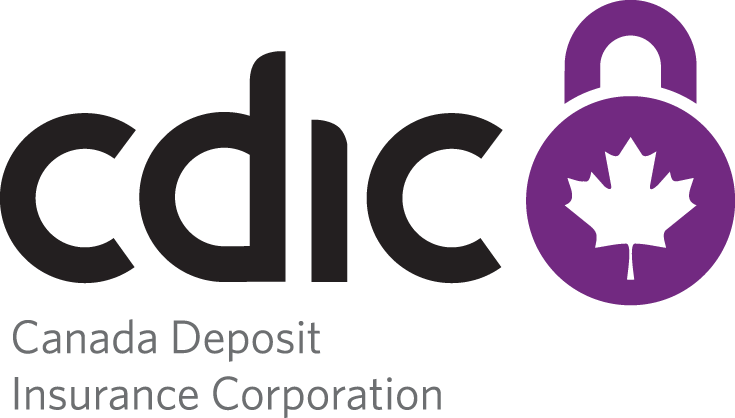IADI Core Principles International Conference
September 11, 2025
Taipei City, Chinese Taipei

This international conference—organized by the International Association of Deposit Insurers (IADI) and hosted by the Central Deposit Insurance Corporation (CDIC) in Taiwan—brings together deposit insurers, resolution authorities, supervisors and other financial safety net participants from around the world. Discussions will focus on the four key objectives of the ongoing review of the IADI Core Principles, which set the international standard for deposit insurance systems.
CDIC’s Christa Walker will moderate Session 2: “Strengthening the Interaction Between Deposit Insurance and Resolution Functions to Achieve Public Policy Objectives.” The session will explore how deposit insurers and resolution authorities can work together effectively to ensure cost-effective resolution measures that protect insured depositors and uphold financial stability.
CDIC speakers
-

Christa Walker
Vice-President, Corporate Affairs, General Counsel and Corporate Secretary
3rd Annual Federal-Provincial Deposit Insurance Forum
October 16, 2025
Ottawa, Ontario

CDIC will host this year’s annual meeting between federal and provincial deposit insurers. The theme is “Working Together to Strengthen Canada’s Deposit Insurance System.” Topics of discussion will include depositor behaviour and expectations, crisis testing and preparedness, and strengthening deposit insurance preparedness through successful industry engagement.
CDIC speakers
-

Gina Byrne
Chief Operating Officer
-

Christa Walker
Vice-President, Corporate Affairs, General Counsel and Corporate Secretary
31st Annual Flagship Conference on Regulatory Compliance for Financial Institutions
November 25-26, 2025
Toronto, Ontario
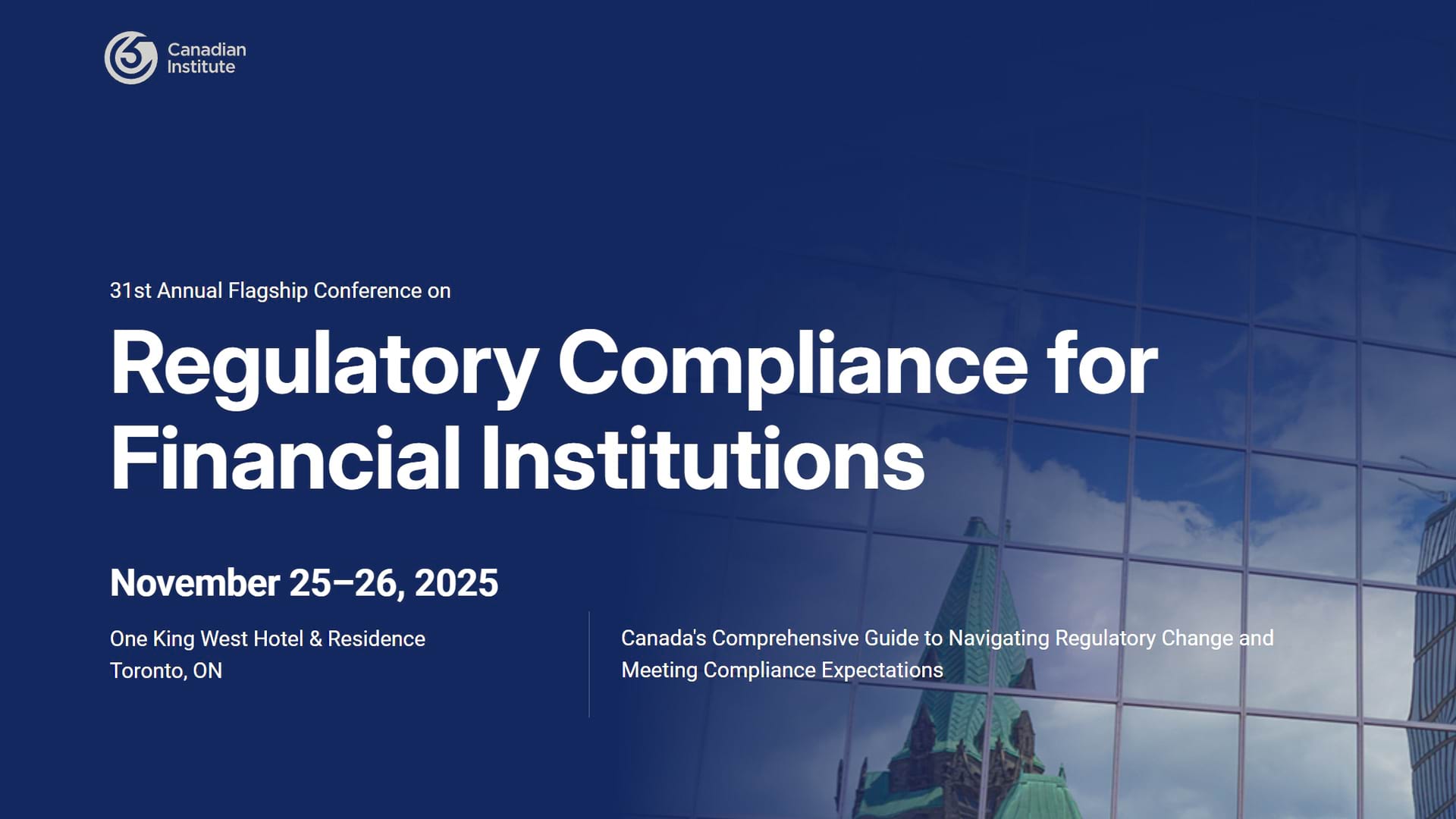
This annual event, hosted by the Canadian Institute, brings together Canada’s top regulators and financial industry leaders to tackle the latest in regulatory changes, risk mitigation, and compliance innovation. Participants will discuss new regulations and compliance requirements for Canada’s financial institutions and share practical solutions and strategies on how to meet them.
CDIC’s Emiel van der Velden will deliver a keynote address on how we collaborate with our member institutions, nominee brokers, and multitude of professional trustees on data requirements and testing – with the objective of ensuring deposit protection. The session will delve into relevant findings from recent exercises and highlight new areas of focus.
CDIC speakers
-

Emiel van der Velden
Head, Member Risk and Resolution
Interested in this event?
Learn moreProtecting Your Clients’ Deposits: Essential Knowledge for Professional Trustees
October 22, 2025
Webinar - 2:00 pm ET
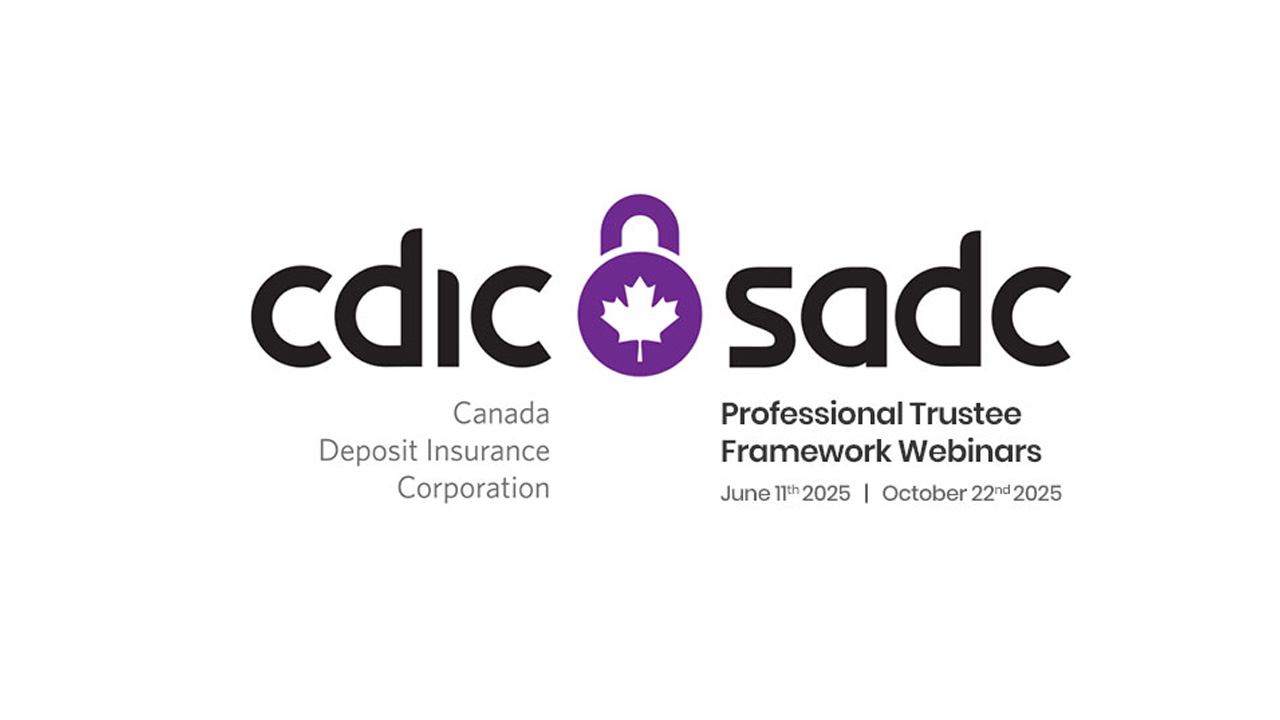
Are you a professional trustee? Are the deposits you hold in trust fully protected if a bank fails? Join our exclusive webinar for professional trustees to learn how to maximize CDIC’s deposit protection for your clients.
In just 60 minutes, you will learn about:
- The rationale and purpose behind the Professional Trustee Framework
- The legislative criteria to qualify as a professional trustee
- The specific data collection and reporting requirements professional trustees need to know, should CDIC request their beneficiary information
- The requirements to securely submit beneficiary data and communicate with CDIC
- How CDIC’s coverage may apply to the deposits professional trustees hold in trust in the unlikely event their CDIC member institution fails
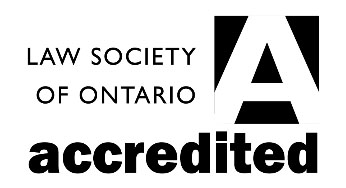
This program contains 45 minutes of Professionalism Content.
Register today to secure your spot and protect your clients’ interests!
CDIC speakers
-

John Rossi
Director, Trust Deposit Operations
-

Katherine Grieder
Manager, Trust Deposit Operations
-

Amanda Amiri
Manager, Trust Deposit Operations
Interested in this event?
Learn moreProtecting Your Clients’ Deposits: Essential Knowledge for Professional Trustees
June 11, 2025
Webinar - 2:00 pm ET

Are you a professional trustee? Are the deposits you hold in trust fully protected if a bank fails? Join our exclusive webinar for professional trustees to learn how to maximize CDIC’s deposit protection for your clients.
In just 60 minutes, you will learn about:
- The rationale and purpose behind the Professional Trustee Framework
- The legislative criteria to qualify as a professional trustee
- The specific data collection and reporting requirements professional trustees need to know, should CDIC request their beneficiary information
- The requirements to securely submit beneficiary data and communicate with CDIC
- How CDIC’s coverage may apply to the deposits professional trustees hold in trust in the unlikely event their CDIC member institution fails
Register today to secure your spot and protect your clients’ interests!
CDIC speakers
-

John Rossi
Director, Trust Deposit Operations
-

Katherine Grieder
Manager, Trust Deposit Operations
-

Amanda Amiri
Manager, Trust Deposit Operations
Interested in this event?
Learn more
You may be looking for ways to invest your money, but are unsure where to start and what the best options are. If you are looking for an investment option that provides a guaranteed return, a Guaranteed Investment Certificate (GIC) may be a good choice.
When you purchase a GIC, you are loaning money to the financial institution that issues it for a specific amount of time. In return, you’re guaranteed an interest rate for the investment’s term, and the repayment of your initial investment at the end of the term. It’s a low-risk financial product, making it a popular choice for those who are willing to lock-in on the investment.
Here are five things to know about GICs:
-
1
You can buy them directly from the issuing financial institution, or through a broker or investment advisor.
-
2
A big advantage is that they are eligible for deposit protection through organizations like the Canada Deposit Insurance Corporation (CDIC). When purchased through a member institution, GICs are eligible for insurance, should the institution fail.
If you want to find out how coverage works, try our online calculator.
-
3
When purchasing a GIC, typically your investment is locked in for the duration of the term. For example, if you put $3,000 into a five-year GIC, that $3,000 is locked in until the five years are up.
-
4
They can have fixed or variable interest rates. The time frame for when the interest will be paid depends on the product, but it could be monthly, annually, or at the end of the term (at maturity).
-
5
GICs can be deposited in many types of accounts like a Tax-Free Savings Account (TFSA), First Home Savings Account (FHSA), Registered Retirement Savings Plan (RRSP), or a savings account and can be held in brokerage accounts.
Knowing and understanding how your savings are protected brings peace of mind. Before purchasing any financial product, it’s always good to speak with your financial institution or broker and read the product information to understand the terms.

Spring has sprung and you know what that means — time for some spring cleaning. Year after year we all take the time to make our homes neat and tidy, finding a place for everything. Why not take this time to tidy your finances too? Organizing your finances can help you better plan for the future and bring peace of mind.
-
1
Get organized
Just like when you clean your closet, it’s always good to start by taking stock. Consider where you are now financially, where you want to be and how much you will need to get there. Then you can determine how best to store your assets, organizing them into different accounts for specific purposes.
For example, if you’ve decided it’s time to consider a retirement fund to prepare for life after your career, there’s the tax-deferred Registered Retirement Savings Plan (RRSP). Or if you want to open an account to save for post-secondary education, then a Registered Education Savings Plan (RESP) may work best for you. In any case, organize your assets in a way that suits your needs.
-
2
Polish up on how your money is protected
Now you’ve done the work, and everything is just where you want it — how do you keep it that way? More importantly, how do you make sure your money is safe?
You can find out how your deposits are protected through online tools like our online calculator. We protect eligible deposits in the event of bank failure. There are several categories of protection including RRSPs and RESPs and each category is protected up to $100,000.
-
3
Set up automatic transfers
To help organize future funds, try setting up automatic transfers for bills and savings. Like a personal assistant for your accounts, these can be arranged to automatically transfer specified amounts of money from one account to another.
Find more information on deposit protection or calculate your coverage.

Purchasing your first home is an exciting time in your life, but preparing and saving for this milestone can be overwhelming.
For less stress, consider the following:
-
1
Set a realistic timeline and savings goal
The time it takes to build that down payment is different for everyone, so it’s important to make plans and budgets that work for you and your lifestyle. When you’re ready to start putting money aside, it’s worth finding ways to maximize your savings. One way of doing this is by holding your deposits in a tax-free First Home Savings Account (FHSA).
-
2
Keep your savings safe
While you’re on your journey to savings, you’ll want to ensure that the down payment you worked so hard for is kept safe. If you do open an FHSA, look for an institution that qualifies for deposit insurance. For reference, we insure eligible deposits in nine different categories, including FHSAs and other accounts. We also have a handy online calculator to help determine your coverage.
-
3
Know what you want and shop around
When it comes time to start house hunting, take the time to think about what makes a house a home and what matters most to you. It never hurts to shop around and see all the market has to offer before making a purchase.
Finally, whether it’s reaching a savings goal or making that final purchase, don’t forget to celebrate when you hit those milestones.

Many people worry about what happens to their money if their bank were to fail. In Canada, there are established rules and organizations to ensure our financial system is strong, resilient and well-regulated to help protect your savings.
One of these organizations is the Canada Deposit Insurance Corporation (CDIC). As part of Canada’s financial safety net, we exist to provide deposit insurance on a federal level to keep your money safe if one of our member banks fails.
Eligible deposits
For each member institution, we insure eligible deposits up to $100,000 per category. This includes:
- Savings accounts
- Chequing accounts
- Term deposits (like Guaranteed Investment Certificates (GICs))
- Foreign currency (like U.S. dollars)
In the unlikely event a bank were to fail in Canada, we can help in a number of ways — from restructuring the institution to quickly reimbursing your insured money.
What is not protected?
Here’s what’s not insured by CDIC, but may be covered by other organizations:
- Mutual funds
- Stocks and bonds
- Cryptocurrencies (like Bitcoin)
- Exchange Traded Funds (ETFs)
- Items in safety deposit boxes
How can you keep your money safe?
To make sure more of your money is protected, you can put it in different banks that are covered by federal deposit insurance. You can also have different types of accounts, like personal or joint, to increase your coverage.
Banks in Canada don’t fail very often because of strong rules and government safeguards. But if one does, understanding the protections in place can help you feel safer about your savings.

With the rise in interest rates and inflation over the last few years, it’s no wonder people today are more concerned with their money. But did you know that, in Canada, your deposits and investments may be protected by various government organizations?
Here are three ways to find out how your money is protected:
-
1
Learn about the different protection frameworks
Become familiar with which financial products are eligible for protection and by whom. There are different organizations that offer protection depending on the type of product, including:
- Federal deposit insurance through CDIC: Protects deposits in banks and other federally regulated institutions.
- Provincial deposit insurance: Protects deposits in provincial credit unions.
- Investor protection: Offers protection for other investments like mutual funds, stocks and bonds.
-
2
Find online resources
You can find out which of these organizations your financial institution is a member of, and how coverage may apply to your financial portfolio by visiting the organization’s website. For instance, we provide a list of all member institutions. We also have additional information and tools, like our online calculator, which you can use to help determine your coverage.
-
3
Ask questions
Don’t hesitate to reach out to your financial institution to find out how your financial products are protected.
With all the changes and uncertainty over the last few years, one thing you shouldn’t have to worry about is whether your money is safe.
IADI Podcast – How do deposit insurers test their crisis preparedness?
March 12, 2025
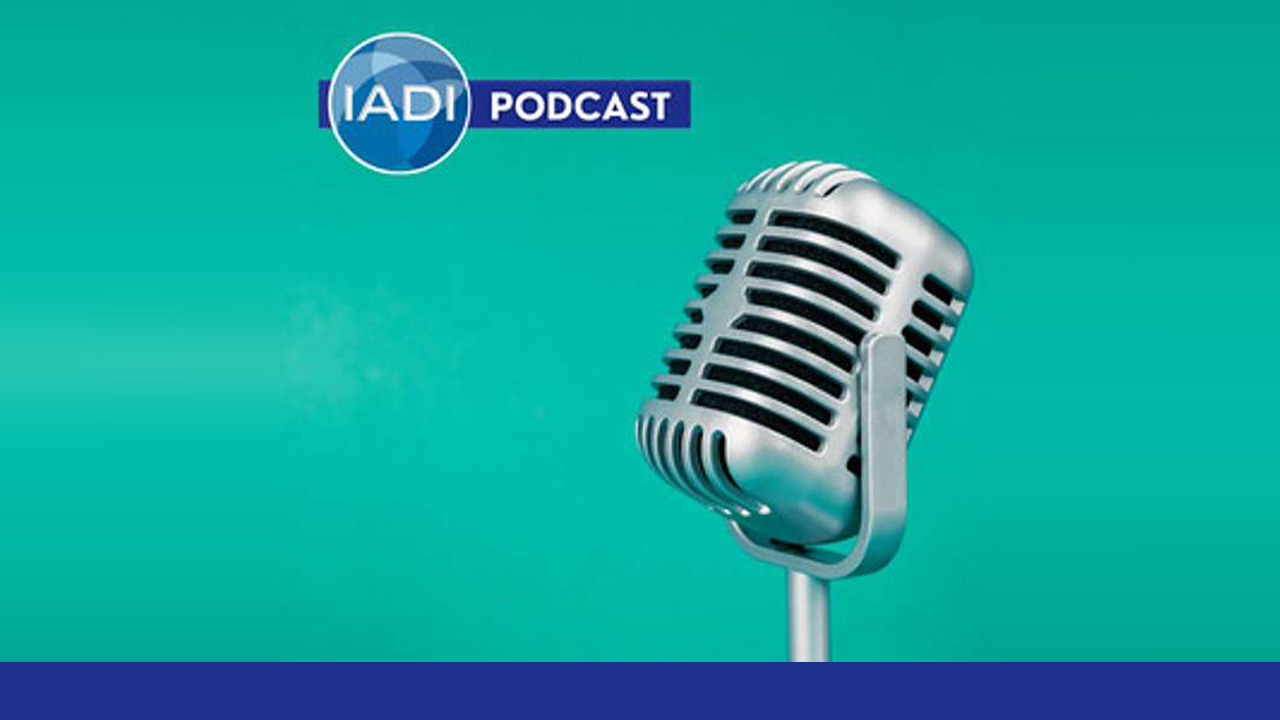
Official podcast of the International Association of Deposit Insurers (IADI). Hosted by Dr. Bert Van Roosebeck, IADI’s senior policy and research advisor. Released on March 12, the episode will delve into IADI’s latest research paper on how deposit insurers globally prepare for crises, with a spotlight on case studies from Canada and Malaysia.
CDIC speakers
-

Chloe Yao
Manager, Crisis Simulations
Interested in this event?
Learn moreHow CDIC protection applies following Canadian Western Bank – National Bank of Canada transaction
March 3, 2025
OTTAWA – March 3, 2025 – The Canada Deposit Insurance Corporation (CDIC) is advising depositors that, effective March 1, 2025, the following CDIC member institutions have amalgamated: Canadian Western Bank (CWB) and National Bank of Canada (NBC).
Upon the amalgamation of these entities, deposits held at CWB migrated to NBC. CWB subsidiaries Canadian Western Trust and Valiant Trust are now subsidiaries of NBC and members of CDIC in their own right. Eligible deposits at each subsidiary are protected separately from those at NBC.
Deposits made before amalgamation
Eligible deposits at CWB before the amalgamation continue to be protected separately, up to $100,000 per category for a period of two years post amalgamation, or in the case of term deposits, until maturity (or redemption). However, the amount of separate coverage is reduced by any withdrawals made from those separate deposits, or as term deposits mature or are redeemed.
Deposits made after amalgamation
Coverage for new deposits at NBC after amalgamation depends on the total deposits at CWB and NBC before they amalgamated:
- If the combined deposits (in a category) at CWB and NBC exceeded $100,000, any new eligible deposits (for that category) will not be insured by CDIC.
- If the combined deposits (in a category) at CWB and NBC are under $100,000, any new eligible deposits (for that category) will be added to the previous deposits and insured up to $100,000.
Look for this logo to identify a CDIC member institution:
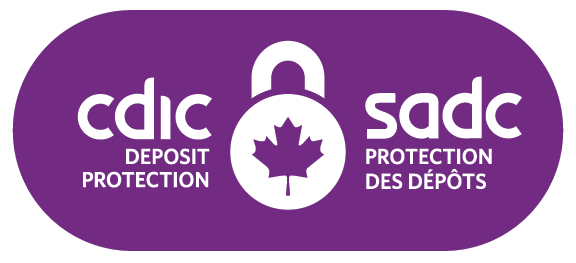
About CDIC
CDIC is a federal Crown corporation, established in 1967. We protect people’s money and contribute to financial stability by safeguarding over $1 trillion in eligible deposits at more than 80 member financial institutions. As a resolution authority, we are responsible for handling the failure of any of our members, from the smallest to the largest. Our members include banks, federally regulated credit unions, as well as trust and loan companies. We are funded by premiums paid by member financial institutions and do not receive public funds to operate. We have resolved 43 member failures to date, affecting some two million people in Canada. No one has ever lost any money under CDIC protection.
– 30 –
For further information
CDIC Media Team
Tel: 613-943-4395
E-mail: media@cdic.ca
